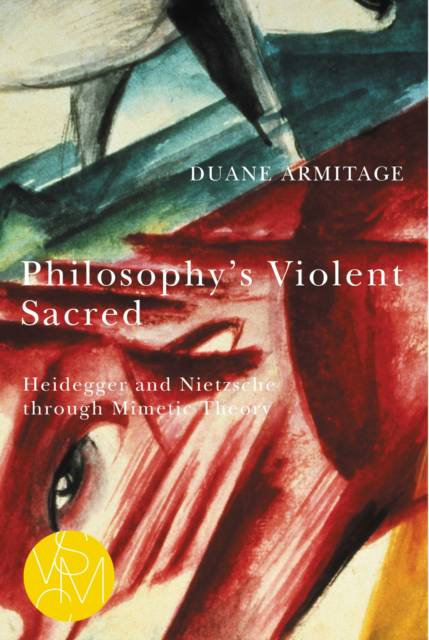
- Afhalen na 1 uur in een winkel met voorraad
- Gratis thuislevering in België vanaf € 30
- Ruim aanbod met 7 miljoen producten
- Afhalen na 1 uur in een winkel met voorraad
- Gratis thuislevering in België vanaf € 30
- Ruim aanbod met 7 miljoen producten
Zoeken
€ 31,95
+ 63 punten
Omschrijving
Continental and postmodern thinking has misidentified the source of violence as originating from Western metaphysics. It has further failed to acknowledge the Judeo- Christian source of its ethic--the ethic of concern for victims. In this volume Duane Armitage attempts a critique of continental philosophy and postmodernism through the lens of René Girard's mimetic theory. This critique is directed primarily at the philosophies of Nietzsche and Heidegger, both among the foremost representatives of continental and postmodern thought. Armitage argues that Girard's engagement with Heidegger and Nietzsche radically alters many of the axioms of current postmodern continental philosophy, in particular the overcoming of metaphysics on the theoretical level and continental philosophy's tacit commitments to (neo-)Marxism on the practical level. Detailed attention to the implications of Girard's philosophical thought results in a paradigm shift that deals perhaps a deadly blow to continental and postmodern thinking. Armitage further argues that Girard's thinking solves the very problems that continental and postmodern thinking sought (but failed) to solve, namely the problems of violence and victimization, particularly within the context of the aftermath of the Second World War. Ultimately, this volume shows that at the heart of postmodern thinking lies an entanglement with the violent sacred.
Specificaties
Betrokkenen
- Auteur(s):
- Uitgeverij:
Inhoud
- Aantal bladzijden:
- 160
- Taal:
- Engels
- Reeks:
Eigenschappen
- Productcode (EAN):
- 9781611863871
- Verschijningsdatum:
- 1/04/2021
- Uitvoering:
- Paperback
- Formaat:
- Trade paperback (VS)
- Afmetingen:
- 147 mm x 234 mm
- Gewicht:
- 226 g

Alleen bij Standaard Boekhandel
+ 63 punten op je klantenkaart van Standaard Boekhandel
Beoordelingen
We publiceren alleen reviews die voldoen aan de voorwaarden voor reviews. Bekijk onze voorwaarden voor reviews.











